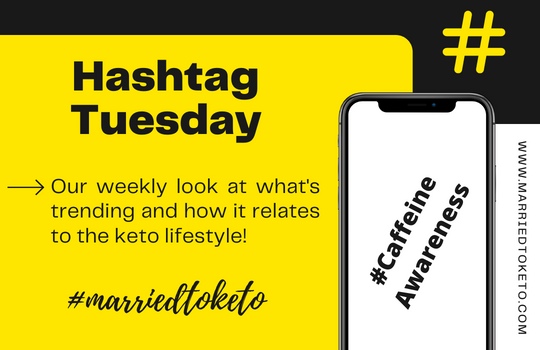The other day, I woke up really late. I usually leave the house at 6:20 am and it was 6:10 when I realized my alarms hadn’t gone off. I raced out of bed, threw on some clothes, and grabbed my lunch that I had thankfully packed the night before. What I didn’t do? Sit down with my morning coffee. My day went to pieces. Sure, I got a coffee when I got to work, but it wasn’t the same. I felt tired, cranky, and scattered all day. Caffeine awareness month is about recognizing how much caffeine you take in each day and consider maybe cutting back.
What is Caffeine?
Well, caffeine is a drug. It’s a natural chemical that stimulates your brain and your adrenal glands. The adrenal glands are what releases adrenaline into your body. If you release adrenaline into your body in the evening, it can mess up your sleep patterns. That’s why it’s recommended that you not take in caffeine in the evenings.
Because it’s a drug, even though it’s natural, you can build a tolerance to it. That means that we need more of it to get the desired effects. You can find caffeine naturally in coffee, tea, and chocolate. It’s also added to foods and drinks to give a pick-me-up. When it’s added, it tends to be more concentrated. Most of us have heard of truck drivers taking caffeine pills to keep them awake and alert when driving long distances. A caffeine pill has between 100 and 200 mg of caffeine in each one.
Caffeine Awareness of Your Daily Intake
How much is too much caffeine? Most research shows that people can take in about 400 mg of caffeine a day safely. It’s important to note that everyone is different and we all react differently to caffeine. Listen to your body! If you are having negative effects at this amount, take in less. You are your own expert.

So, how much is 400 mg of caffeine? An average cup of coffee (8 fluid ounces) has about 95 mg of caffeine. That’s a normal cup – no cheating with that huge mug you keep at work! A cup of tea has about 26 mg. The 8 ounce can of Red Bull has about 77 mg. A can of Coca Cola has 22 mg of caffeine. If you are really sleepy, you can get a Starbucks double shot energy in coffee and get 145 mg of caffeine! Wow, that’s a lot.
Effects of Caffeine Awareness – Prepare Yourself
If you are taking in too much caffeine, you may find that your blood pressure is high. It can also cause insomnia, indigestion, headaches, and anxiety. If you’re feeling a bit old, it’s important to note that caffeine can also cause skin aging and wrinkling. Those all sound awful and I see why people look at the amount of caffeine they are ingesting and pause. While you’re pausing, it’s also important to consider what you are putting in your coffee and tea. Coffee creamers are even more scary than the levels of caffeine in the drink.
You may look at the list of the effects from caffeine and decide you need to cut back. I am not one of those people. In the past, I have given up caffeine for small amounts of time and the withdrawal effects were horrible. When I switched to herbal teas rather than coffee or regular tea, it did not go well.
Some of the side effects of giving up caffeine include feeling tired and irritable. When I gave up caffeine, I had an awful headache. It can cause constipation and an increase in anxiety. I had most of these effects. Had I cut back gradually, these effects probably would not have been so severe. But, I’m an all or nothing kind of gal.
Celebrating Caffeine Awareness Month
For March, you may want to just take note of how much caffeine you are taking in. I drink 2-3 cups of coffee a day. However, I don’t drink pop and I don’t eat chocolate, so I’m not taking in other main sources of caffeine. I think I’m safe. If I see any of the effects listed above, I might have to reconsider. For now, I’ll keep my cup of coffee and protect all those around me in the mornings.
Wendy



